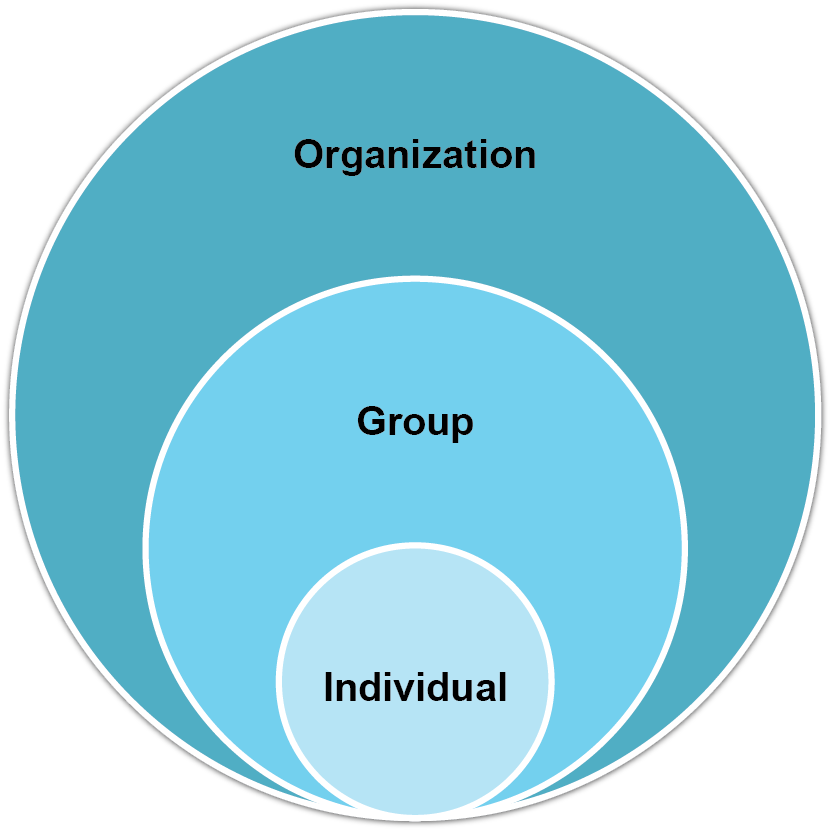1.7 Organizational Behaviour
Organizational Behaviour (OB) is defined as the systematic study and application of knowledge about how individuals and groups act within the organizations where they work. OB draws from other disciplines to create a unique field. As you read this book, you will most likely recognize OB’s roots in other disciplines. Some examples include:
- Psychology: personality, motivation, values
- Sociology: team processes, organizations as a whole
- Economics: decision making, problem solving
- Political Science: power and influence
- Medical Science: impact of stress on workers

Those who study organizational behavior are interested in several outcomes such as work attitudes (e.g., job satisfaction and organizational commitment) as well as job performance (e.g., customer service and counterproductive work behaviors). A distinction is made in Organizational Behaviour (OB) regarding which level of the organization is being studied at any given time. There are three key levels of analysis in OB. They are examining the individual, the group, and the organization. For example, if you want to understand your boss’s personality, you would be examining the individual level of analysis. If you want to know about how your manager’s personality affects the team, you are examining things at the team level. But, if you want to understand how the organization’s culture affects your boss’s behaviour, you would be interested in the organizational level of analysis.
Why Organizational Behavior Matters
OB matters at three critical levels. It matters because it is all about things employees care about. OB can help them become a more engaged organizational member. Getting along with others, getting a great job, lowering stress level, making more effective decisions, and working effectively within a team…these are all great things, and OB addresses them!
It matters because employers care about OB. A recent survey by the National Association of Colleges and Employers (NACE) asked employers which skills are the most important for them when evaluating job candidates, and OB topics topped the list (NACE 2007 Job Outlook Survey, 2008).
The following were the top five personal qualities/skills:
- Communication skills (verbal and written)
- Honesty/integrity
- Interpersonal skills (relates well to others)
- Motivation/initiative
- Strong work ethic
Finally, it matters because organizations care about OB. The best companies in the world understand that the people make the place. How do we know this? Well, it knows that organizations that value their employees are more profitable than those that do not (Huselid, 1995; Pfeffer, 1998; Pfeffer & Veiga, 1999; Welbourne & Andrews, 1996).
Think!
“1.2 Understanding Organizational Behavior” from Organizational Behavior by University of Minnesota is licensed under a Creative Commons Attribution-NonCommercial-ShareAlike 4.0 International License, except where otherwise noted.

